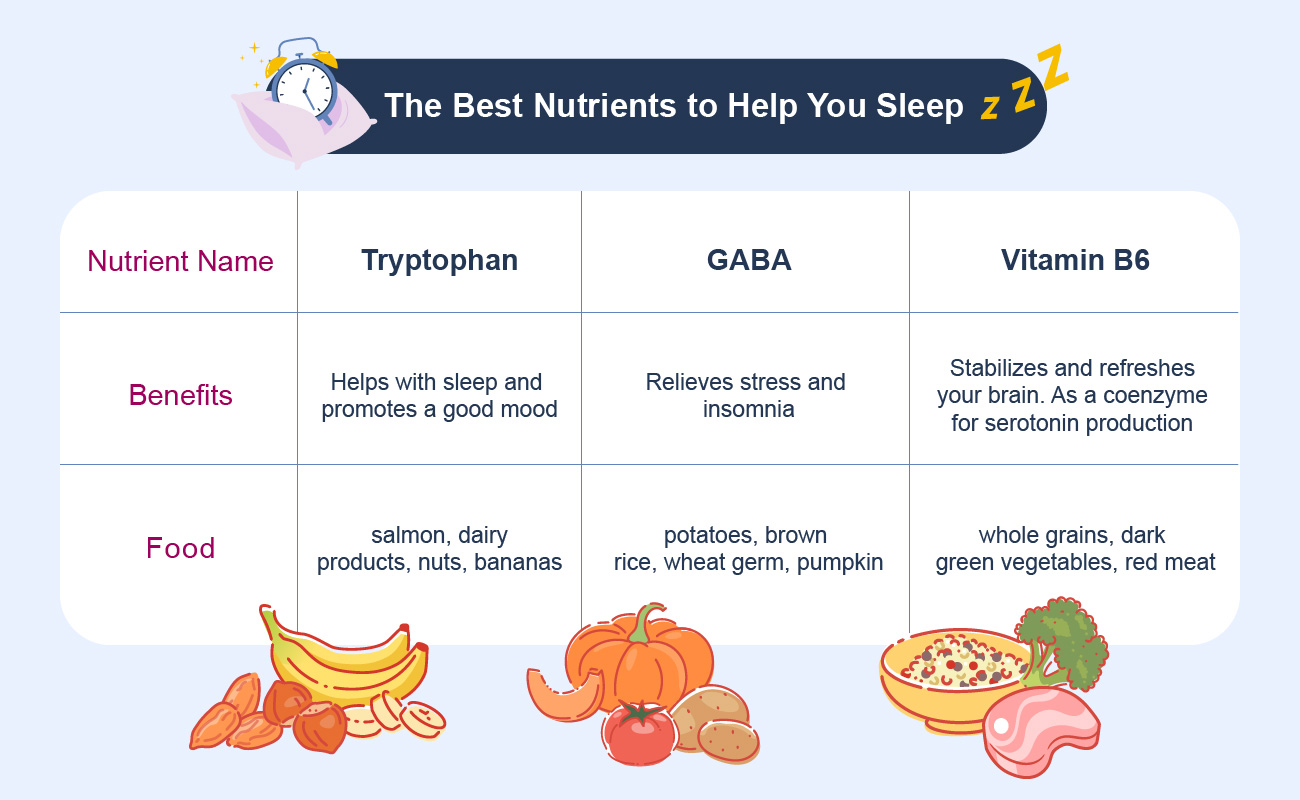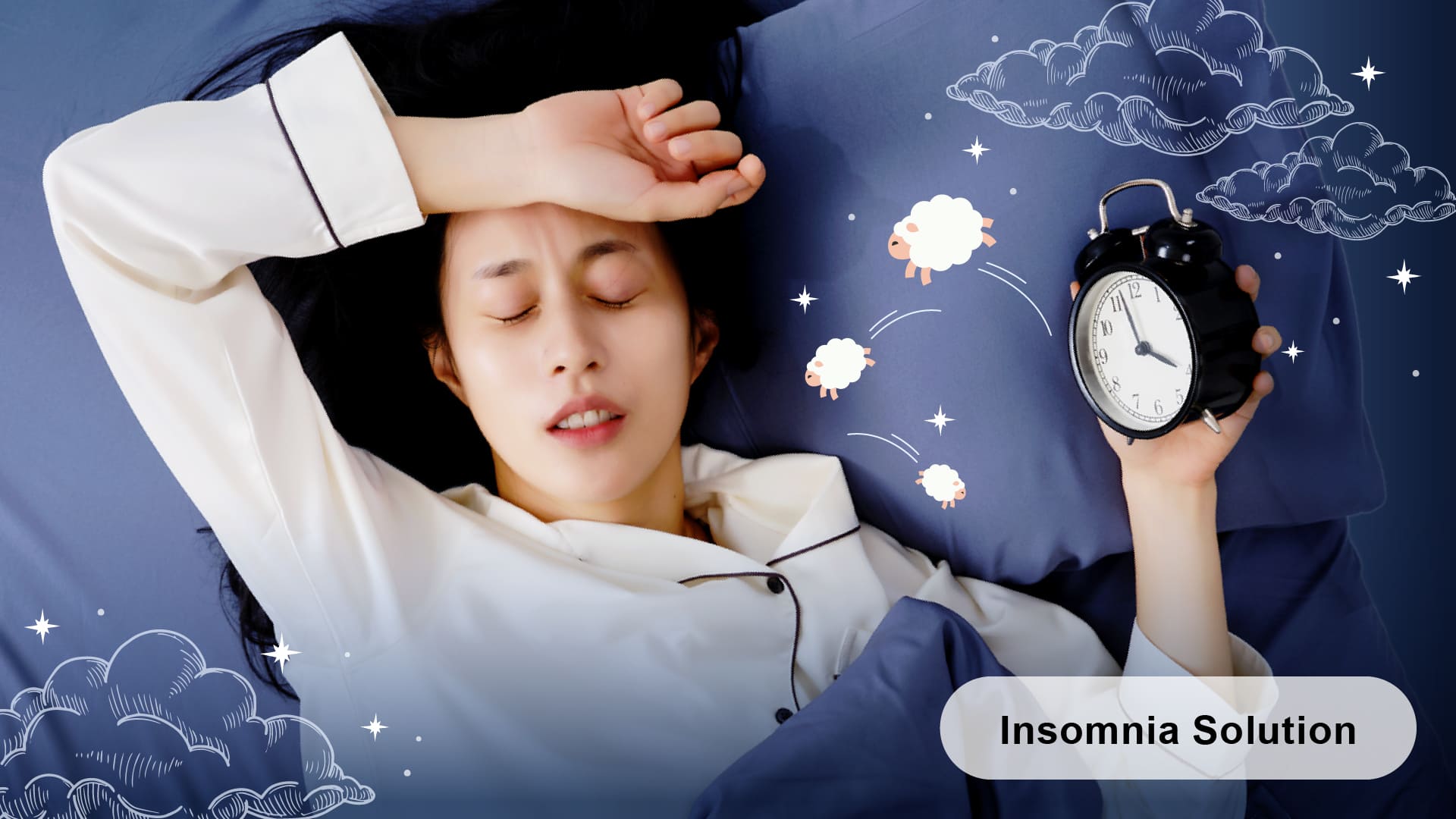Can’t sleep? 5 Insomnia Solutions and Essential Nutrients Can Help You.
What will happen if you have chronic insomnia?:
If you experience chronic insomnia, the inability to sleep well for an extended period, it can lead to the following issues:
- Impact on metabolism:
- Weaken immune system:
Insomnia can also affect the body’s repair function, causing a decline in immunity. Insomnia may also affect hormone secretion, leading to endocrine disorders. - Cognitive decline:
Long-term insomnia can have adverse effects on memory and cognitive abilities, making it difficult for individuals to concentrate, leading to confusion, and even increasing the risk of dementia. - Anxiety and emotional instability:
When sleep is insufficient, the amygdala in the brain cannot function normally. This can lead to increased emotional fragility and instability, making individuals more prone to anxiety, depression, anger, and even, in the long run, psychiatric abnormalities or mental illness. - Deline in quality of life:
Lack of adequate sleep can affect daily life quality, reducing work efficiency, decreasing interests, and limiting social activities.
Chronic insomnia can affect metabolism, increasing the likelihood of obesity or cardiovascular disease risk.

5 Solutions for Insomnia to Help You Sleep Better
Insomnia can be tackled from various angles, including improving the sleep environment, establishing good sleep habits, adjusting dietary habits, and appropriate exercise.
The following are some methods to help with sleep so that insomnia no longer troubles your life.
- Sunlight exposure:
During the day, it can help regulate the circadian rhythm and improve sleep quality. Engaging in outdoor activities during the day, such as walking or light exercise, is recommended, as it can effectively aid in falling asleep.
- Limiting sleep time:
Long naps or resting close to bedtime may affect nighttime sleepiness. If you want to take a short nap during the day, setting an alarm to limit the nap time is recommended.
- Avoid excessive consumption of caffeine:
While moderate caffeine intake can help you stay alert, avoiding too much caffeine at night is best to prevent sleep issues. Drinking water in moderation is also advisable, as excessive water consumption can increase urination pressure, reducing sleep quality.
- Avoid using electronic devices before bedtime:
Such as phones, tablets, or computers. Blue light can suppress melatonin secretion, disrupt the circadian rhythm, and make falling asleep difficult.
- Moderate exercise:
It helps relax the body and mind, promoting sleep. Pre-sleep exercises, such as yoga and stretching, can be a good choice, but avoid vigorous exercise before bedtime as it can make the body too excited, affecting sleep.
During the day, it can help regulate the circadian rhythm and improve sleep quality. Engaging in outdoor activities during the day, such as walking or light exercise, is recommended, as it can effectively aid in falling asleep.
Long naps or resting close to bedtime may affect nighttime sleepiness. If you want to take a short nap during the day, setting an alarm to limit the nap time is recommended.
While moderate caffeine intake can help you stay alert, avoiding too much caffeine at night is best to prevent sleep issues. Drinking water in moderation is also advisable, as excessive water consumption can increase urination pressure, reducing sleep quality.
Such as phones, tablets, or computers. Blue light can suppress melatonin secretion, disrupt the circadian rhythm, and make falling asleep difficult.
It helps relax the body and mind, promoting sleep. Pre-sleep exercises, such as yoga and stretching, can be a good choice, but avoid vigorous exercise before bedtime as it can make the body too excited, affecting sleep.

The Best Nutrients to Help You Sleep
If you want to improve your insomnia problem, you can also adjust your diet. It’s recommended to consume foods containing the following ingredients to improve insomnia.
Tryptophan:
Increases serotonin and melatonin levels in the blood and brain, both of which can help us fall asleep more easily.
- Tryptophan’s most crucial function is as a precursor for serotonin synthesis in the brain, improving sleep quality.
- Some studies have suggested that tryptophan can be used to treat insomnia and sleep apnea.
- Helps relieve premenstrual syndrome in women, adjust physique, and improve mood.
GABA:
It is an inhibitory neurotransmitter that helps relieve nervous tension and promote relaxation and sleep.
- Suitable for people who often feel nervous, anxious, or depressed.
- Can activate the parasympathetic nervous system, inhibit the sympathetic nervous system, relieve stress, and relax the mood.
Vitamin B6:
It is essential for the nervous system to function, helping to maintain the health of nerve cells and improving sleep.
- Vitamin B6 is associated with mood regulation, with the most significant relationship with the cause and treatment of depression.
- Can affect the neurotransmitter “serotonin” that controls depression and anxiety.
- 5-HTP conversion to serotonin requires the action of Decarboxylase, and vitamin B6 assists in this enzyme’s action.
Magnesium:
It is one of the essential minerals needed by the body, and it plays a certain role in relaxing the nerves and muscles, effectively improving difficulty in falling asleep.
Calcium:
It is essential for normal operating the body’s nerves and muscles. Adequate intake of calcium helps relax the body and promote sleep.




